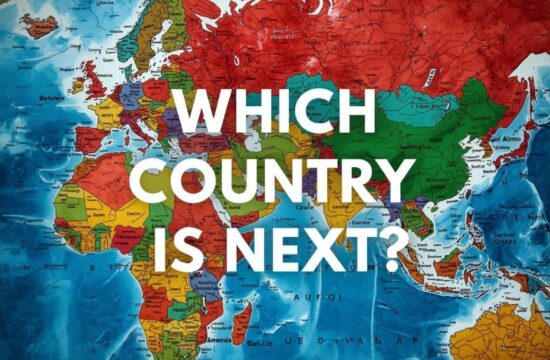Joe Macharia – Kenya Building Construction Timber and Furniture industries employees union.
Thousands of mostly young people held weeklong demonstration in Kenya’s capital and across the country against new tax proposals by the administration of President William Ruto in its annual budget legislation.
The protests are primarily driven by concerns over proposed tax hikes and economic policies that many believe disproportionately affect the younger population. But, after taking the front line in this week’s street protests, the Generation Z (Gen Zs) might have finally emerged as a political force to be reckoned with.
The protests, under the ‘Occupy Parliament banner’ is to try to push MPs to reject tax hikes in the Bill and mainly mobilized on social media platforms.
The mostly young protesters were largely peaceful, although the police, who have a reputation for brutality in breaking up civil protests, still found a reason to fire live bullets at them. While some initial clashes occurred, the overall message of the protests – a call for people-centered reforms, resonated loudly and clearly.
Reporters highlighted the passionate leadership of Generation Z activists, a demographic rarely seen to engaged on economic issues.
Despite occasional forceful responses from authorities, including tear gas deployment, the protests remained largely peaceful, with experienced civil society groups playing a crucial role in monitoring the situation
The protests brought Nairobi’s central business district to a standstill as horse-riding riot police threw tear-gas canisters and opened water cannons on demonstrators who advanced towards parliament buildings, where lawmakers debated the finance bill.
The protesters are demanding that lawmakers vote against the legislation, which is expected to be burdensome for salaried Kenyans, entrepreneurs and consumers. They say President Ruto has gone back on his pledge to reduce taxes and lower the cost of living.
The new taxes would include a 2.75% levy on income for the national medical insurance plan, as well as increased taxes on vegetable oil and fuel, which would increase the cost of production and trickle down to the consumer.
Proposals to introduce a 16% value-added tax on bread and a new annual tax on motor vehicles were removed from the legislation Tuesday after a meeting between Ruto and ruling party members. But those demonstraters disagreed with the amendments because it did not go far enough but people want legislators to totally reject the budget legislation.
Lawmakers were debating and voting on the legislation in its second reading. It is due for its third and final reading this week as more demonstrations are going on. Meanwhile, demonstrators tried to breach a security cordon to access parliament buildings, carrying anti-government placards and chanting against Ruto.
Effects of high taxation in Kenya
Increasing taxes in an environment of high cost of living is usually detrimental to a country’s overall economic growth. Instead of increasing taxes, the Kenyan government can adopt several strategies to stimulate economic growth and improve government
In an environment characterized by high unemployment and escalating living costs, the Kenya government’s decision to raise taxes poses a significant threat to the country’s economic growth. Increasing taxes in such a precarious economic landscape risks exacerbating financial burdens on both citizens and businesses, potentially leading to a deeper economic downturn.
This strategy could affect consumption, hinder investment, and ultimately result in a declining GDP.
The detrimental effects of high taxation during economic hardship are evident in several African countries. For instance, amidst hyperinflation exceeding 600 percent and high unemployment, Zimbabwe introduced a 2 percent tax on electronic transactions in 2019.
This policy led to reduced economic activity and a shift towards the informal sector, contributing to a significant GDP contraction from 3.5% in 2018 to 8.1%. Similarly, a few years ago an inflationary South Africa imposed high tax rates on individual and corporate incomes that led to dampening of investment and consumer spending, resulting in a 5.96% GDP decline.
Nigeria also faced high inflation and unemployment rates, yet its government imposed multiple taxes, including VAT increases.
These measures strained household finances and reduced economic growth, contributing to 1.8% GDP decline in 2020, its steepest since the 1960s. In Ghana the government introduced high taxation in a high inflationary environment where the cost of living was already high and this led to reduced consumer spending and shrinking business investments, slowing GDP growth to 0.4% in 2020.
Therefore increasing taxes in an environment of high cost of living is usually detrimental to a country’s overall economic growth.
Instead of increasing taxes, the Kenyan government can adopt several strategies to stimulate economic growth and improve government revenue. One approach is to broaden the tax base by integrating the informal sector into the formal economy.
Simplifying tax compliance and offering incentives for small businesses to register can help achieve this. For instance, Rwanda’s approach to formalizing its economy through streamlined tax filing and payment process, can be further enhanced to reduce tax evasion and improve compliance, thereby increasing revenue without raising taxes.
Promoting domestic investment and attracting foreign direct investment (FDI) can also significantly boost economic growth. Creating a favorable business environment through regulatory reforms and infrastructure development can attract investors. Kenya should adopt effective management and monetization of natural resources and tourism that can generate substantial revenue ensuring that proceeds are invested in infrastructure and education.
Encouraging innovation and supporting startups can drive economic diversification and growth. Implementing policies that attract venture capital, support research and development and reduce bureaucratic hurdles can foster a vibrant entrepreneurial ecosystem.
Nigeria’s tech sector, supported by investments in innovation hubs and incubators, illustrates how fostering entrepreneurship can lead to economic growth and diversification. Even though Kenya has done a commendable job in attracting technology , investments, more needs to be done in order for the economy to be transformed into a technology integrated economy.
In conclusion, raising taxes amid high unemployment and high cost of living is a risky strategy that could hinder Kenya’s economic growth.
The experiences of Zimbabwe, South Africa, Nigeria, and Ghana and others highlight the dangers of such policies. Instead , Kenya should focus on broadening the tax base, enhancing collection efficiency, attracting investments, leveraging natural resources, and fostering innovation. These strategies can boost economic growth, improve living standards, and increase government revenue without imposing additional burdens on an already strained populace.











